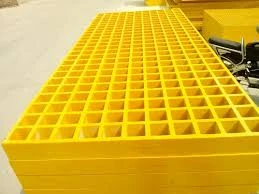loading...
- No. 9, Xingyuan South Street, Dongwaihuan Road, Zaoqiang County, Hengshui, Hebei, China
- admin@zjcomposites.com
- +86 15097380338
- Welcome to visit our website!
Design and Functionality of FRP Filter Tanks for Water Treatment Applications
The Importance of FRP Filter Tanks in Water Treatment Systems
In recent years, the need for efficient water treatment solutions has skyrocketed due to increasing environmental concerns and regulatory demands. One of the pivotal components in advanced water treatment systems is the FRP (Fiber Reinforced Plastic) filter tank. This innovative technology not only enhances the filtration process but also offers durability and versatility that traditional materials cannot match.
Understanding FRP Technology
FRP is a composite material made from a polymer matrix reinforced with fibers, typically glass. This combination provides exceptional strength-to-weight ratios, corrosion resistance, and longevity. Because of these properties, FRP filter tanks have found widespread application in various industries, including municipal water treatment, wastewater management, and industrial processes.
Advantages of FRP Filter Tanks
One of the primary advantages of FRP filter tanks is their resistance to corrosion. Unlike conventional steel or concrete tanks, FRP tanks do not rust or degrade when exposed to harsh chemicals or environmental conditions. This feature not only extends the life of the equipment but also reduces maintenance costs significantly. Moreover, FRP tanks can be manufactured to be much lighter than their steel counterparts, which simplifies installation and reduces the structural requirements for the supporting framework.
Another significant benefit of using FRP filter tanks is their flexibility in design. These tanks can be customized to accommodate different sizes and configurations, allowing for optimal integration within existing water treatment systems. This adaptability makes them suitable for a wide range of applications, from large municipal treatment plants to small-scale industrial operations.
Efficiency in Filtration
frp filter tank

FRP filter tanks are engineered to promote efficient filtration processes. They can be utilized with various types of filtration media, such as sand, gravel, activated carbon, and even synthetic media, depending on the specific requirements of the water being treated. The design of these tanks facilitates even distribution of water flow, ensuring that contaminants are effectively trapped and removed from the water.
The operational efficiency of FRP filter tanks also extends to their ability to handle varying flow rates. This flexibility allows systems to adapt to changes in demand or fluctuations in water quality, making them a crucial component in dynamic environments.
Environmental Benefits
Additionally, the use of FRP filter tanks contributes to environmentally sustainable practices. By providing a more durable and efficient solution for water filtration, these tanks help minimize water waste and reduce the need for chemical additives often used in traditional filtering systems. This aligns with global efforts to promote cleaner and greener technologies in water treatment.
Future Perspectives
As the water treatment industry continues to evolve, the role of FRP filter tanks is expected to grow. With advancements in composite materials and engineering techniques, the efficiency and effectiveness of these tanks will only improve. The ongoing development of smart monitoring systems and IoT technology may further enhance the operation of FRP filter tanks, allowing for real-time data collection and analysis to optimize treatment processes.
Conclusion
In conclusion, FRP filter tanks represent a vital innovation in water treatment technology. Their strength, durability, and efficiency make them an ideal choice for a wide range of applications. As we face increasing challenges related to water quality and availability, the adoption of FRP technology will play a crucial role in building resilient and effective water treatment systems. Embracing such advancements is essential for safeguarding our most precious resource—water—for future generations.
-
GRP Structures: The Future of Lightweight, High-Performance EngineeringNewsJun.20,2025
-
FRP Water Tank: High-Performance Storage for Corrosive and Clean Water SystemsNewsJun.20,2025
-
FRP Square Tube: The New Industry Standard for Chemical and Structural ApplicationsNewsJun.20,2025
-
FRP Pultruded Profiles: The Ultimate Choice for Lightweight Structural StrengthNewsJun.20,2025
-
FRP Handrails: The Safer, Smarter, and Stronger Choice for Modern InfrastructureNewsJun.20,2025
-
FRP Grating: The Smart Solution for Durable, Lightweight Industrial FlooringNewsJun.20,2025
-
Why Choose a Galvanized Water Tank for Your Storage NeedsNewsMay.21,2025
